
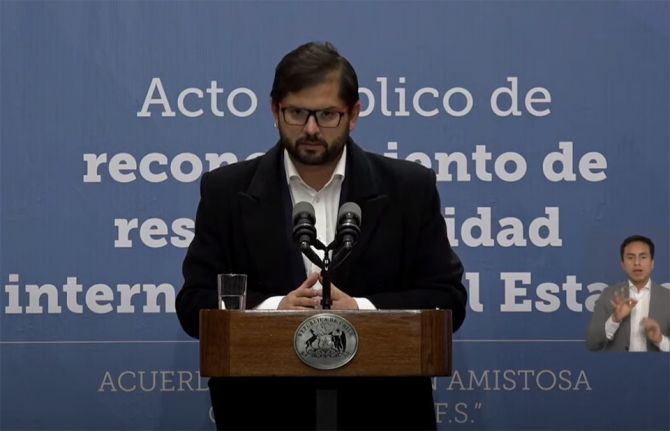
Press Statement
UNAIDS welcomes Chile’s public apology in landmark case of involuntary sterilization of women living with HIV
27 May 2022 27 May 2022GENEVA, 27 May 2022—UNAIDS welcomes the Chilean Government’s public acknowledgement of international responsibility in the emblematic case of violations of the rights of women living with HIV who were sterilized without their consent. The President of Chile, Gabriel Boric Font, has issued a public apology as part of a settlement resulting from a case brought before the Inter-American Commission on Human Rights against the Chilean state by Francisca, a Chilean woman living with HIV who was sterilized without her consent shortly after giving birth in 2002.
“We welcome the recognition of international accountability in this emblematic case of human rights violations that women living with HIV and their reproductive autonomy have long suffered,” said Luisa Cabal, Director of the UNAIDS Regional Support Team for Latin America and the Caribbean. “It vindicates a journey of more than 10 years, both for Francisca and the organizations that accompanied her, in her quest for justice.”
When Francisca—a young woman from a rural town in Chile—turned 20 years old, she and her partner received the happy news of the arrival of their first child. She was diagnosed with HIV in a routine prenatal test. Francisca took all appropriate measures to minimize the risk of vertical transmission of HIV and gave birth to an HIV-negative baby boy in November 2002. However, the day after the caesarean section, Francisca received the devastating news that the surgeon on duty had decided to sterilize her during delivery and without her consent.
In 2009, the Center for Reproductive Rights and the Chilean organization Vivo Positivo took Francisca’s case to the Inter-American Commission on Human Rights. This case was part of a documentation of stories of Chilean women living with HIV who were often pressured not to become pregnant, as well as to undergo surgical sterilization. One of the documented accounts tells of another woman, identified as Daniela, who, after giving birth, was told that she could not hug or kiss her newborn child because she would transmit HIV to her baby. She said in interviews that this was how she understood what discrimination was.
After more than a decade of international litigation and after the Inter-American Commission on Human Rights studied the case, a friendly settlement agreement was signed with the Chilean state, in which the government accepted its responsibility and committed to redress the violations and to take measures to ensure that such acts would not happen again.
UNAIDS intervened in this case with an amicus curiae (friend of the court) brief that informed the Inter-American Commission on Human Rights on the health guidelines and human rights standards that each country must follow to respect, protect and guarantee the human rights of people living with HIV.
“I would like to start by apologising to Francisca, who I understand is on the other side of the camera, for the serious violation of your rights and also for the denial of justice and for all the time you had to wait for this,” Mr Boric said at the opening of his speech during the official ceremony, broadcast live on social media. “How many people like you do we not know? It hurts to think that the state, which today I have the honour to represent, is responsible for these cases. I pledge to you, and to those who today represent you here in person, that while we govern, we will give the best of each one of us as authorities so that something like this will never happen again and certainly so that in cases where these atrocities have already been committed, they will be properly redressed.”
“I would love to have been me, with my voice, my face and my body, the one who after so many years of struggle stood present to lead this act in my own name. However, making my identity known would have closed endless doors for me,” said Carmen Martinez, the Associate Director of Legal Strategies for Latin America and the Caribbean for the Center for Reproductive Rights, as she read the words shared by Francisca to the audience. “To this day, people who carry HIV are still looked down upon with contempt as if it was our decision to become infected. However, I want to believe with conviction that this will change.”
“Finally, justice was done; through this case we call on all governments to continue to invest in the elimination of HIV discrimination in all services, including health care,” said Sara Araya, the Coordinator of Live Positive Gender. “The message is clear: the autonomy and physical integrity of women and all people living with HIV must be secured without discrimination. No more rights violations against women living with HIV.”
HIV-related stigma and discrimination has a significant impact on the health, lives and well-being of people living with or at risk of HIV. Stigma and discrimination hinders the HIV response by limiting access to broader sexual and reproductive health and other health services. UNAIDS continues to work daily to ensure that governments invest in preventing and responding to violations linked to the forms of intersectional discrimination to which people living with HIV have been subjected.
Francisca delivered a healthy baby boy in 2002 and was then sterilized without her consent by the doctor who carried out her caesarean section, making the decision that a woman living with HIV should not be able to have children. The friendly agreement announced this week comes after more than a decade’s litigation by the woman and her legal teams.
“This settlement is a significant moment for women around the world who have been fighting for reproductive justice for decades. Coercive sterilization of women living with HIV is a violation of women’s most fundamental human rights,” said the Executive Director of UNAIDS, Winnie Byanyima. “Unfortunately, this practice is still happening in many countries and efforts to stop it and bring justice to more women must be stepped up.”
This settlement comes after years of efforts before the Inter-American Commission on Human Rights after an earlier complaint in the Chilean justice system was unsuccessful. The case was litigated by the Chilean organization Vivo Positivo and the international human rights organization Center for Reproductive Rights.
The Global AIDS Strategy 2021–2026: End Inequalities, End AIDS is based on the promotion of human rights, gender equality and dignity, free from stigma and discrimination for all people living with and affected by HIV. It is a commitment by UNAIDS to an ambitious vision to end gender inequalities and realize human rights, including the right to health, calling on all partners and stakeholders in the HIV response in all countries to transform unequal gender norms and end stigma and discrimination.
UNAIDS
The Joint United Nations Programme on HIV/AIDS (UNAIDS) leads and inspires the world to achieve its shared vision of zero new HIV infections, zero discrimination and zero AIDS-related deaths. UNAIDS unites the efforts of 11 UN organizations—UNHCR, UNICEF, WFP, UNDP, UNFPA, UNODC, UN Women, ILO, UNESCO, WHO and the World Bank—and works closely with global and national partners towards ending the AIDS epidemic by 2030 as part of the Sustainable Development Goals. Learn more at unaids.org and connect with us on Facebook, Twitter, Instagram and YouTube.
Watch
Region/country

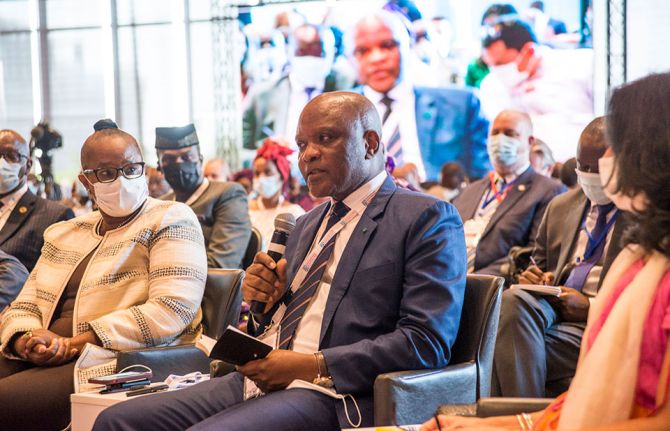
Press Statement
UNAIDS warmly welcomes the confirmation of John Nkengasong to lead the United States global efforts to end AIDS
06 May 2022 06 May 2022GENEVA, 06 May 2022—UNAIDS warmly congratulates John Nkengasong on confirmation by the U.S. Senate as Ambassador-at-Large and Coordinator of United States Government Activities to Combat HIV/AIDS Globally. As the new U.S. Global AIDS Coordinator, Dr Nkengasong will lead the United States’ President’s Emergency Plan for AIDS Relief (PEPFAR).
“This is great news for the world. John Nkengasong is an inspired choice to lead PEPFAR,” said Winnie Byanyima, Executive Director of UNAIDS. “He is one of the world’s leading experts on HIV and pandemic preparedness and has practical experience on how to advance efforts to end AIDS amidst the COVID pandemic. We need the kind of bold thinking and commitment that he has brought throughout his career. It will be a true honour to work with him in his new role, supporting continued United States leadership on HIV, and strengthening the life-saving partnership between the UNAIDS Joint Programme and PEPFAR.”
An HIV virologist with more than three decades of experience in the global HIV response, Dr Nkengasong’s work on COVID-19 in his most recent highly acclaimed role as the founding director of the Africa Centres for Disease Control and Prevention has been internationally recognized.
PEPFAR is a critical partner of UNAIDS, with an unprecedented proven track record of global life-saving work. In over 80 countries, PEPFAR and UNAIDS work hand-in-hand providing support to governments and communities to implement the Global AIDS Strategy and accelerate ending AIDS. Together they ensure that efforts are focused on the people and areas most affected by HIV, including supporting children, women and girls, and key populations.
Since its inception in 2003, the US Government, with bipartisan support, has invested over US$100 billion through PEPFAR – the largest commitment by any nation to address a single disease. The United States’ investments and efforts have saved more than 21 million lives, prevented millions of HIV infections, and accelerated progress toward ending AIDS in over 50 countries.
The world is currently confronted with dual global pandemics. As Dr Nkengasong has noted, “We have seen how COVID-19 has affected some progress in our HIV efforts with devastating results, but we have also witnessed how the health systems and institutions built and strengthened by PEPFAR’s investments have been central to the COVID-19 response.” Through bold global action, the end of AIDS is possible, and actions to accelerate ending AIDS will strengthen the world’s efforts to beat all pandemics.
UNAIDS
The Joint United Nations Programme on HIV/AIDS (UNAIDS) leads and inspires the world to achieve its shared vision of zero new HIV infections, zero discrimination and zero AIDS-related deaths. UNAIDS unites the efforts of 11 UN organizations—UNHCR, UNICEF, WFP, UNDP, UNFPA, UNODC, UN Women, ILO, UNESCO, WHO and the World Bank—and works closely with global and national partners towards ending the AIDS epidemic by 2030 as part of the Sustainable Development Goals. Learn more at unaids.org and connect with us on Facebook, Twitter, Instagram and YouTube.

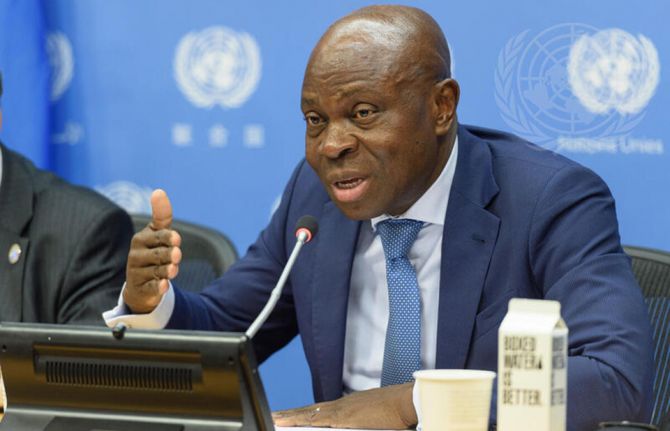
Press Statement
UNAIDS welcomes Gilbert F. Houngbo as the incoming Director-General of ILO
07 April 2022 07 April 2022GENEVA, 7 April 2022—UNAIDS welcomes the announcement by the International Labour Organization (ILO) that Gilbert F. Houngbo, who is from Togo, has been elected as the organization’s 11th Director-General. Mr Houngbo will begin his five-year term in October 2022, taking over from the current Director-General, Guy Ryder.
“I am truly delighted that Gilbert F. Houngbo will be taking on the role of Director-General of the International Labour Organization,” said Winnie Byanyima, Executive Director of UNAIDS. “His commitment to social justice and people-centred global solutions is close to my heart and I look forward to working with him to end inequalities and improve the lives of the most vulnerable, including people living with HIV.”
HIV and other pandemics have a significant impact on labour and productivity and represent a huge burden for working people, their families and communities. HIV-related stigma and discrimination threatens the fundamental rights at work of people living with HIV and undermines their opportunities to obtain decent and sustainable employment.
ILO is the specialized United Nations agency responsible for the world of work. Its main aims are to promote rights at work, encourage decent employment opportunities, enhance social protection and strengthen dialogue on work-related issues. A Cosponsor of UNAIDS, ILO is the lead agency on HIV workplace policies and programmes and private sector mobilization.


Press Statement
UNAIDS strengthens partnership with Germany and opens a new office in Bonn
07 April 2022 07 April 2022GENEVA, 7 April 2022—The German Federal Government has agreed to host a new UNAIDS office in Bonn. The agreement is part of Germany’s commitment to reinforce its partnership with the United Nations and part of UNAIDS’ commitment to realign its work to the new Global AIDS Strategy 2021–2026: End Inequalities, End AIDS.
“UNAIDS welcomes this important support by Germany,” said Winnie Byanyima, Executive Director of UNAIDS. “Germany is continuing to demonstrate its commitment to end AIDS through shared responsibility and global solidarity, and we look forward to working ever more closely into the future towards our common goals.”
The UNAIDS office will house UNAIDS’ management support functions, including People Management, Information and Communications Technology, Finance and the Independent Evaluation Office. Operations will begin in mid-2022 and will be part of the UNAIDS Secretariat’s more geographically distributed “global centre”. Approximately 45 UNAIDS staff will be working in Bonn, a location that also hosts United Nations organizations that include the United Nations Framework Convention on Climate Change, the United Nations Volunteers programme, the United Nations Global Centre for Human Resources Services and the United Nations System Staff College Knowledge Centre for Sustainable Development. It will become the third largest United Nations office in Bonn and joins 25 other United Nations entities with a presence in the city.
“With this relocation of UNAIDS staff to Bonn, Germany shows its commitment to supporting the important work of the Joint United Nations Programme on HIV/AIDS in the global AIDS response and reflects Germany’s commitment to global health overall. We hope that this move as part of the realignment process will contribute to a more effective and cost-efficient UNAIDS. We welcome the United Nations staff to Bonn,” said the German Minister of Health, Karl Lauterbach.
The Government of Germany, parliamentarians, civil society and other partners in Germany have long shown commitment to the global HIV response and to global health and health security. Germany has provided regular contributions to UNAIDS and was the third largest donor in 2020, investing a total of almost US$ 30 million in that year, and pledged US$ 1 billion to the Global Fund to Fight AIDS, Tuberculosis and Malaria at its last replenishment.
A valued partner of UNAIDS, the Government of Germany is firmly committed to ending AIDS as a public health threat by 2030 and has invested significant resources to ensure that no one is left behind. In 2020, Germany contributed an additional €20 million to UNAIDS above its core contribution to strengthen the response to HIV during the COVID-19 pandemic.
UNAIDS
The Joint United Nations Programme on HIV/AIDS (UNAIDS) leads and inspires the world to achieve its shared vision of zero new HIV infections, zero discrimination and zero AIDS-related deaths. UNAIDS unites the efforts of 11 UN organizations—UNHCR, UNICEF, WFP, UNDP, UNFPA, UNODC, UN Women, ILO, UNESCO, WHO and the World Bank—and works closely with global and national partners towards ending the AIDS epidemic by 2030 as part of the Sustainable Development Goals. Learn more at unaids.org and connect with us on Facebook, Twitter, Instagram and YouTube.
Contact
UNAIDS GenevaSophie Barton-Knott
tel. +41 79 514 68 96
bartonknotts@unaids.org
UNAIDS Media
communications@unaids.org
Region/country



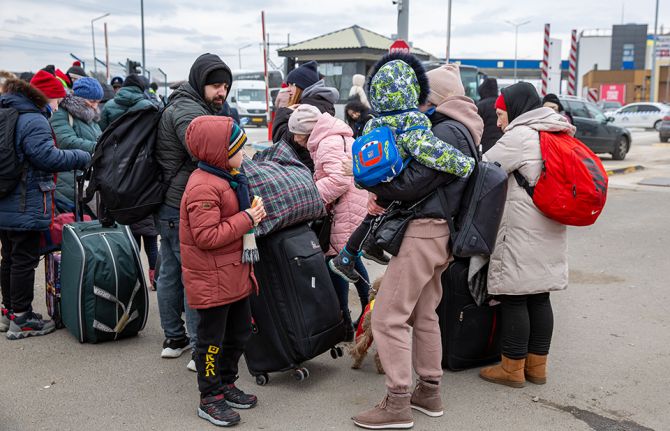
Press Statement
Health partners race to secure life-saving HIV medicines and services for people affected by the war in Ukraine
05 April 2022 05 April 2022As shipments of antiretroviral treatment arrive, challenges are mounting to ensure it reaches those in need
GENEVA, 5 April 2022—The war in Ukraine has resulted in a catastrophic humanitarian crisis with rapidly growing numbers of deaths and casualties, the destruction of entire cities and towns and unconscionable attacks on health facilities and other civilian targets. This is putting Ukrainians living with HIV in grave danger.
“It is becoming increasingly difficult for people to access the health care they need, including services for HIV,” said Winnie Byanyima, Executive Director of UNAIDS. “UNAIDS estimates that 260 000 people were living with HIV in Ukraine before the war broke out, 152 000 of whom were taking daily medication for HIV. There is no cure for HIV. Without access to antiretroviral medicines people living with HIV will die.”
The World Health Organization estimates that there have been 82 separate attacks on hospitals, ambulances and doctors in Ukraine since the war began, killing 72 and injuring at least 43 people. Nearly 50% of Ukraine’s pharmacies are presumed to be closed and many health workers are either displaced or unable to work.
UNAIDS with its cosponsors WHO and UNICEF together with USAID, PEPFAR, and the Global Fund to Fight AIDS, TB and Malaria are working to ensure a 12-month supply of the medicines for people living with HIV in Ukraine. A delivery of 209 000, 90-day supplies of antiretroviral medicines has arrived in Lviv, Ukraine ready to be distributed to people in need. However, distribution within Ukraine is set to be a challenge, particularly in conflict areas. UNAIDS urges respect for and protection of humanitarian corridors to allow for the distribution of humanitarian aid and safe passage for civilians to safety.
The UN Secretary-General has called for “unimpeded access to all affected people and communities” to be guaranteed, and for an end to the war.
“Through remarkable efforts by civil society and government, most sites providing antiretroviral therapy are still at least partially functioning, but the war has disrupted supply chains and patients’ access to those sites,” said Ms Byanyima. “Partners on the ground are scrambling to get lifesaving medicines to people safely. The flexible ability of civil society to reach people is vital and funds are urgently needed to support and strengthen these critical life-lines.”
UNAIDS has issued an appeal for funds to support people living with HIV and key populations with access to HIV services and basic humanitarian needs including the uninterrupted provision of HIV treatment and harm reduction services such as opioid substitution therapy (OST—an effective treatment for dependence on opioids). People living with HIV are urged to contact the Ukrainian HIV hotline number* for more information on the availability of HIV treatment.
A number of prisons are no longer controlled by the government of Ukraine. Prisoners in need must have access to antiretroviral therapy for HIV, or OST (in the case of dependence on opioids).
More than 4 million refugees have fled Ukraine since the war began. It is estimated that up to 1% of refugees could be living with HIV and in need HIV services. UNAIDS with its cosponsors WHO and UNHCR have held talks with the neighbouring countries of Romania, Slovakia, Moldova, Hungary and Poland to brief their respective capitals and health officials on the needs of refugees living with HIV as well as the importance of providing HIV prevention services.
As part of efforts to ensure continuity of HIV treatment, UNAIDS and cosponsor WHO have helped broker a deal with the pharmaceutical company ViiV Healthcare to provide donations of HIV medicines to Poland, the Czech Republic and other European Union countries receiving large numbers of Ukrainian refugees. More support for Ukrainian refugees living with HIV can be found on the ART Initiative for Ukrainians Abroad website which was established in coordination with Ukraine’s Public Health Centre.
The World Health Organization is working with Ukraine’s Public Health Centre on collecting data, while maintaining confidentiality, to understand the whereabouts and needs of people living with HIV affected by the war. There is currently no precise data on the movements of people living with HIV who have already left the country.
UNAIDS is monitoring the situation and closely and working with civil society organizations to support refugees and people living with HIV in Ukraine. UNAIDS is also working to ensure people from key populations including the LGBTI community both in Ukraine and those who have left the country have access to humanitarian services.
*HIV hotline number in Ukraine: 0800 500 451
UNAIDS
The Joint United Nations Programme on HIV/AIDS (UNAIDS) leads and inspires the world to achieve its shared vision of zero new HIV infections, zero discrimination and zero AIDS-related deaths. UNAIDS unites the efforts of 11 UN organizations—UNHCR, UNICEF, WFP, UNDP, UNFPA, UNODC, UN Women, ILO, UNESCO, WHO and the World Bank—and works closely with global and national partners towards ending the AIDS epidemic by 2030 as part of the Sustainable Development Goals. Learn more at unaids.org and connect with us on Facebook, Twitter, Instagram and YouTube.
Contact
UNAIDS GenevaSophie Barton-Knott
tel. +41 79 514 68 96
bartonknotts@unaids.org
UNAIDS Media
communications@unaids.org
Region/country


Press Statement
UNAIDS launches Unbox Me to advocate for the rights of transgender children
30 March 2022 30 March 2022GENEVA, 30 March 2022—In the lead-up to the International Transgender Day of Visibility, on 31 March, UNAIDS has launched an initiative to raise awareness among parents, teachers and the wider community about gender identity during childhood.
The Unbox Me campaign advocates for the rights of transgender children. Most children love to have boxes or hidden places in which they can hide precious trinkets or prized possessions safely and securely. The hidden objects can reveal a lot about the child—who he or she is, what he or she likes and what his or her dreams are. For some transgender children, this act of hiding treasures in a box becomes a way of hiding their identity from disapproving eyes. Unbox Me is about giving transgender children visibility. It is a call for inclusion and acceptance.
In India, more than 90% of transgender people leave their homes or are thrown out by the age of 15 years. Inevitably, many live on the street with no money or education, often relying on sex work. Despite the campaign originating from India, its theme of acceptance and inclusion is universal.
Transgender people around the world are often marginalized and experience discrimination and violence. As a result, transgender people have a 34 times greater risk of acquiring HIV than other adults. Up to 24 countries in the world criminalize or prosecute transgender people. For example, early in the COVID-19 response, some governments instituted gender-specific mobility days during lockdowns, which resulted in arrests against transgender people out on the “wrong” day.
Stigma, discrimination and criminalization tend to make transgender and gender-diverse people invisible, with extreme forms of discrimination leading to even the denial of the existence of gender-diverse people.
This campaign is part of an ongoing UNAIDS collaboration with advertising agency FCB India. Last year, UNAIDS partnered with FCB and released a successful short film, The Mirror, as part of the #SeeMeAsIAm campaign about a young boy looking in the mirror and dressing up as a woman. The film served to raise awareness among parents, teachers and the wider community about gender identity during childhood. Building on the film, Unbox Me seeks to bring home the reality of the many transgender children who are denied their true identity.
Swati Bhattacharya, FCB India’s Creative Chairperson, who conceptualized this campaign, said, “In India, children usually have a box which they use to store their most precious possessions, but in the case of transgender children they need to hide their box of treasures, since some of their most precious possessions don’t fit the gender norm that society expects them to conform to.”
UNAIDS works closely with the transgender community, civil society organizations and governments all around the world to decriminalize transgender people, secure their rights and ensure that they have access to health, education and social protection and that they are protected from abuse and exploitation.
“Many of us take our gender identity for granted, but for many children it is not so easy. It’s a matter of daily survival, a daily struggle,” said Mahesh Mahalingam, the UNAIDS Director of Communications and Global Advocacy. “Children all around the world must be supported in expressing their identity freely.”
In India, the Unbox Me campaign has garnered support among the education community. Teachers in many schools across India are using the boxes featured in the campaign as a conversation starter to raise awareness about gender identity.
Many prominent personalities and community leaders have also participated in the Unbox Me campaign, notably Indian film director Zoya Akhtar and television anchor Barkha Dutt.
UNAIDS is now extending the campaign to the global level.
If you would like to participate in the campaign or share your thoughts, contact UNAIDS at Communications@unaids.org.
UNAIDS
The Joint United Nations Programme on HIV/AIDS (UNAIDS) leads and inspires the world to achieve its shared vision of zero new HIV infections, zero discrimination and zero AIDS-related deaths. UNAIDS unites the efforts of 11 UN organizations—UNHCR, UNICEF, WFP, UNDP, UNFPA, UNODC, UN Women, ILO, UNESCO, WHO and the World Bank—and works closely with global and national partners towards ending the AIDS epidemic by 2030 as part of the Sustainable Development Goals. Learn more at unaids.org and connect with us on Facebook, Twitter, Instagram and YouTube.
Video

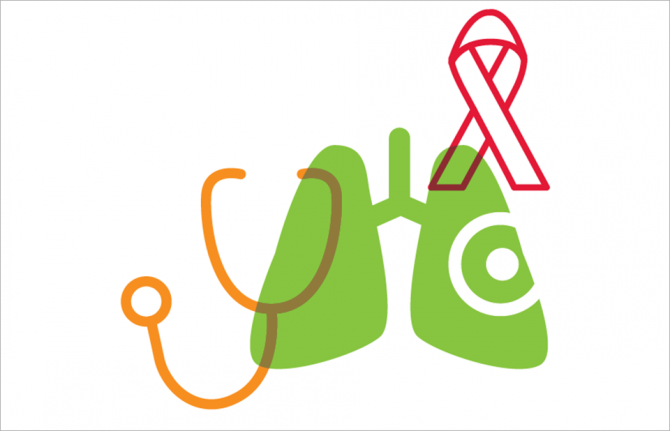
Press Statement
Impact of COVID-19 hits hard as TB deaths among people living with HIV rise for the first time since 2006
23 March 2022 23 March 2022On World Tuberculosis Day 2022, UNAIDS is calling for urgency in diagnosing and treating TB as TB deaths among people living with HIV rise for the first time after years of progressive decline
GENEVA, 23 March 2022—Tuberculosis (TB) is the leading cause of death among people living with HIV, accounting for around one third of AIDS-related deaths globally. Coordinated and scaled up efforts to prevent, diagnose and treat the two diseases had resulted in a 68% decline in TB deaths among people living with HIV between 2006 and 2019. However, in its 2021 Global Tuberculosis Report, the World Health Organization announced that TB deaths among people living with HIV increased for the first time in 13 years, from 209 000 in 2019 to 214 000 in 2020.
“The increase in TB deaths among people living with HIV is alarming and demonstrates the fragility of pandemic progress,” said Winnie Byanyima, Executive Director of UNAIDS. “When COVID-19 hit, global attention on HIV and TB shifted as the world focused on tackling the new pandemic. This has meant lives needlessly lost and important targets missed for HIV, TB and other diseases. Urgent action and increased investments are needed to get us back on track.”
People living with HIV are 18 times more likely to develop TB disease. Although around 85% of people who develop TB disease can be successfully treated, the treatment success rates for people living with HIV are much lower, at around 77%. This demonstrates the importance of scaling up prevention efforts as well as treatment for the two diseases.
Concerted and collective action in this area has saved lives in recent years. Between 2018 and 2020, some 7.5 million people living with HIV were given preventive TB treatment, surpassing the global target of 6 million. But much more needs to be done to address the underlying inequalities that continue to fuel the spread of HIV and TB.
Refugees and displaced people are at particularly high risk of developing TB. At the end of 2020, the Office of the United Nations High Commissioner for Refugees estimated that 82.4 million people around the world were displaced from their homes. The war in Ukraine has already forced 3.5 million people to flee the country and millions more are internally displaced. It is critical that Ukraine and its neighbouring countries receive urgent support to provide essential health services for people affected by the war, including services for TB and HIV.
“In this time of crisis, there is an opportunity to build a pandemic-resilient future if leaders work together to tackle the inequalities that endanger us all,” said Ms Byanyima. “While AIDS, TB and COVID-19 each spread in unique ways, we are watching as each is driven by social and economic inequality that leaves some communities more vulnerable and the whole world at risk. We can address those inequalities, or we can let these pandemics continue—the power is in our hands.”
The Global Fund to Fight AIDS, Tuberculosis and Malaria (Global Fund) is the leading international funder of TB programmes; however, COVID-19 has had a devastating impact. Between 2019 and 2020, the number of people treated for TB in the countries where the Global Fund invests fell by around 1 million. This year, at its seventh replenishment, the Global Fund is calling for an additional US$ 18 billion to save 20 million lives and get the world back on track towards ending HIV, TB and malaria. To end the three diseases by 2030 and build strong national health systems to respond to emerging pandemics, it is essential that the Global Fund be fully funded.
UNAIDS is continuing to work with partners to reach the HIV/TB targets set for 2025, which include ensuring that 90% of people living with HIV receive preventive treatment for TB and reducing TB-related deaths among people living with HIV by 80% (from a 2010 baseline). To make this happen will require the Global Fund to be fully funded and that investments be made in research and development, in expanding services as well as in adopting new and innovative strategies to reach everyone in need.
UNAIDS
The Joint United Nations Programme on HIV/AIDS (UNAIDS) leads and inspires the world to achieve its shared vision of zero new HIV infections, zero discrimination and zero AIDS-related deaths. UNAIDS unites the efforts of 11 UN organizations—UNHCR, UNICEF, WFP, UNDP, UNFPA, UNODC, UN Women, ILO, UNESCO, WHO and the World Bank—and works closely with global and national partners towards ending the AIDS epidemic by 2030 as part of the Sustainable Development Goals. Learn more at unaids.org and connect with us on Facebook, Twitter, Instagram and YouTube.
Contact
UNAIDS GenevaSophie Barton-Knott
tel. +41 79 514 68 96
bartonknotts@unaids.org
UNAIDS Media
communications@unaids.org
Our work

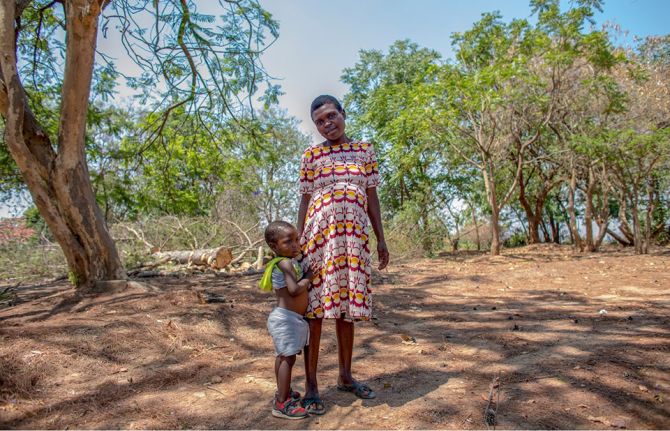
Press Statement
UNAIDS welcomes parliament’s decision to repeal the law that criminalizes HIV transmission in Zimbabwe
18 March 2022 18 March 2022GENEVA, 18 March 2022—UNAIDS congratulates Zimbabwe’s parliament for repealing section 79 of the Criminal Law Code, which criminalizes HIV transmission. A new marriage bill adopted by parliament that repeals the criminal code section is to be signed into law by the president. The criminalization of HIV transmission is ineffective, discriminatory and undermines efforts to reduce new HIV infections. Such laws actively discourage people from getting tested for HIV and from being referred to the appropriate treatment and prevention services.
“Public health goals are not served by denying people their individual rights and I commend Zimbabwe for taking this hugely important step,” said UNAIDS Executive Director, Winnie Byanyima. “This decision strengthens the HIV response in Zimbabwe by reducing the stigma and discrimination that too often prevents vulnerable groups of people from receiving HIV prevention, care and treatment services.”
UNAIDS has worked closely with Zimbabwe’s National AIDS Council, Zimbabwe Lawyers for Human Rights, parliamentarians, civil society activists and communities to advocate for the repeal of the law criminalizing HIV. Overly broad and inappropriate application of criminal law against people living with HIV remains a serious concern across the globe. More than 130 countries worldwide still criminalize HIV non-disclosure, exposure and transmission through either specific or general criminal legislation.
In 2019, Zimbabwe completed a legal environment assessment, which identified the criminalization of HIV transmission as a barrier to health care and a driver of stigma and discrimination for people living with HIV and other key populations. Since then, the United Nations Development Programme has worked with key populations and other stakeholders, convening meetings with parliamentarians and other partners to advance the recommendations of the legal environment assessment.
In 2018, UNAIDS, the International Association of Providers of AIDS Care and the International AIDS Society convened an expert group of scientists who developed an Expert Consensus Statement on the Science of HIV in the Context of Criminal Law. The statement calls on the criminal justice system to ensure that science informs the application of the law in criminal cases related to HIV.
Zimbabwe has made great progress in the response to HIV over the past decade. It is estimated that 1.2 million of the 1.3 million people living with HIV in the country are now on life-saving medicines. AIDS-related deaths have decreased by 63% since 2010, with new HIV infections down by 66% over the same period.
UNAIDS
The Joint United Nations Programme on HIV/AIDS (UNAIDS) leads and inspires the world to achieve its shared vision of zero new HIV infections, zero discrimination and zero AIDS-related deaths. UNAIDS unites the efforts of 11 UN organizations—UNHCR, UNICEF, WFP, UNDP, UNFPA, UNODC, UN Women, ILO, UNESCO, WHO and the World Bank—and works closely with global and national partners towards ending the AIDS epidemic by 2030 as part of the Sustainable Development Goals. Learn more at unaids.org and connect with us on Facebook, Twitter, Instagram and YouTube.
Our work
Region/country

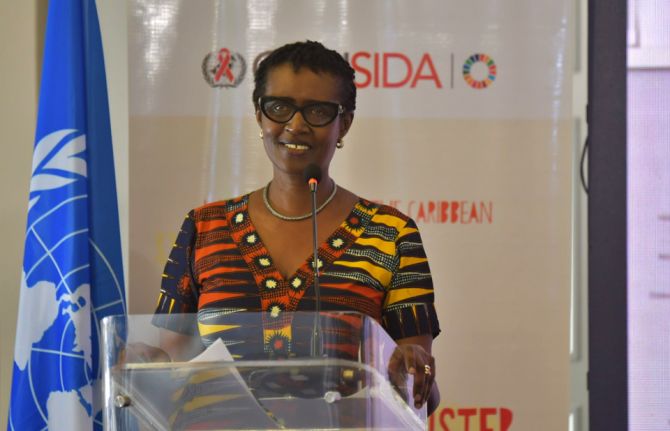
Press Statement
UNAIDS Executive Director’s message on International Day for the Elimination of Racial Discrimination
21 March 2022 21 March 202221 March 2022
Winnie Byanyima
Executive Director of UNAIDS
Under-Secretary-General of the United Nations
It has been more than half a century since the United Nations proclaimed the 21 March as the International Day for the Elimination of Racial Discrimination. On that day in 1960 police opened fire on a crowd of peaceful protesters standing up and speaking out against apartheid in South Africa. Dozens were killed that day. It took a further 30-year bitter battle for apartheid legislation to be repealed, during which time millions of black Africans were removed from their homes and forced into segregated neighbourhoods. The world said never again…
Yet today racism continues to thrive, deepening inequalities, fracturing societies and denying people their basic human rights, including their right to health.
Racism is a public health and human rights issue of global concern. It is recognised that racism is a key determinant of disease and defines who has access to life-saving prevention, treatment, quality health care and overall well-being.
The large racial and ethnic disparities in access to HIV services are evident. Although black Africans account for the vast majority of the population in South Africa and for the large majority of people living with HIV, the public sector services on which black South Africans rely are typically of poorer quality than the private sector services available to white South Africans. In the United States of America, African American people account for 12% of the national population but for 41% of new HIV diagnoses and AIDS-related deaths. To end AIDS it is imperative to close the inequalities that drive it and that includes addressing racial inequalities.
History should have taught us all the most appalling life-costing consequences of racism and inequity, yet racism remains rife across countries and within countries. The COVID-19 pandemic and ensuing vaccine apartheid is a stark reminder of this and has cost each one of us the quickest and least harmful exit route from the crisis.
Failure to tackle racism will continue to cost millions of lives and livelihoods around the world; to stall progress on tackling poverty; to block development efforts and threaten global public health and economic security. Because, make no mistake, the costs of inequality are not confined to those living in the poorest countries.
All human beings are born free and equal in dignity and rights. On the International Day for the Elimination of Racial Discrimination we must chart a new path to secure the rights of all people in all nations and raise our voices for action against racism.
UNAIDS
The Joint United Nations Programme on HIV/AIDS (UNAIDS) leads and inspires the world to achieve its shared vision of zero new HIV infections, zero discrimination and zero AIDS-related deaths. UNAIDS unites the efforts of 11 UN organizations—UNHCR, UNICEF, WFP, UNDP, UNFPA, UNODC, UN Women, ILO, UNESCO, WHO and the World Bank—and works closely with global and national partners towards ending the AIDS epidemic by 2030 as part of the Sustainable Development Goals. Learn more at unaids.org and connect with us on Facebook, Twitter, Instagram and YouTube.

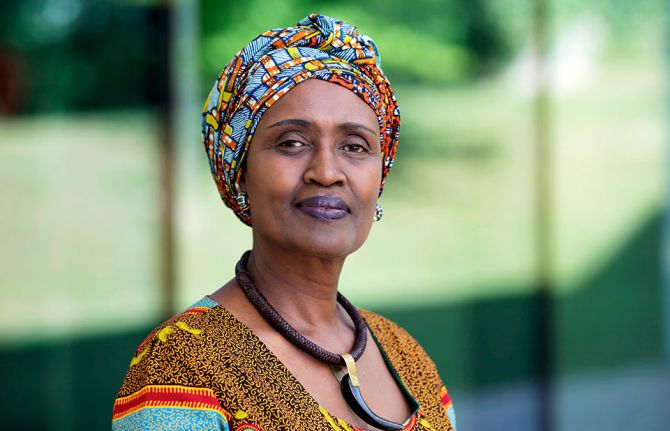
Press Statement
UNAIDS Executive Director's message on International Women’s Day 2022
08 March 2022 08 March 20228 March 2022
Winnie Byanyima
Executive Director of UNAIDS
Under-Secretary-General of the United Nations
Congratulations on International Women’s Day to all whose determination and solidarity is the light of hope and the power for change.
Women are not waiting to be offered a seat at the table, they are bringing their own fold-up chair.
This year’s theme calls for “Gender equality today for a sustainable tomorrow”. As the women’s movements have brought to the fore, and as all the evidence demonstrates, every development goal depends on ensuring the rights of all women and girls.
Gender inequality is a threat to everyone. We cannot uphold patriarchy and defeat AIDS.
The COVID-19 crisis has exacerbated the intersecting inequalities women face. Surges have been reported in gender-based violence, forced child marriages and teenage pregnancies. Almost one in two women reported that they or a woman they know experienced violence since the COVID-19 pandemic started. Calls to helplines have increased fivefold in some countries during the pandemic. Violence against and harassment of lesbian, gay, bisexual, transgender and intersex people has increased, as has stigma and discrimination against marginalized communities. The trajectory to gender parity, which already had been 100 years away, is now 36 more years away.
The goal cannot only be to get back to normal, however: normal was the problem. Instead, leaders need to seize this moment of crisis and opportunity to secure transformation. They need to deliver now on the bold policy shifts and upscaled investments that will ensure equality.
We must end gender-based violence. Violence violates the dignity and freedom of women. Violence drives the AIDS pandemic. In areas of high HIV burden, women subjected to intimate partner violence face up to a 50% higher chance of acquiring HIV.
We must remove all barriers to access to sexual and reproductive health and rights. Only 55% of women and adolescent girls report being in control of decisions about their own sexual and reproductive health and rights. Maternal mortality is the leading cause of death for adolescent girls aged 15–19 years globally, and HIV is the third leading cause of death among women aged 15–49 years—both preventable when women control their own bodies.
We must ensure that every girl is educated and empowered. Research shows that completion of secondary education can reduce a girl’s risk of acquiring HIV by up to half, and by even more if this is complemented by a package of rights and services. We need all girls, including those who dropped out during the COVID-19 pandemic and those who were out of school even before COVID-19, in school, safe and strong.
As countries struggle with the current fiscal challenges, services vital for gender equality are among sectors that are suffering the biggest budget cuts. If we do not find the money, we will all pay a much higher price as a consequence.
The only effective route map to ending AIDS, achieving the Sustainable Development Goals and ensuring health, rights and shared prosperity, is a feminist route map. Equality is the means of progress and is the right of every woman.
Women, in all your wonderful diversity, we the United Nations are on your side, and by your side.
UNAIDS
The Joint United Nations Programme on HIV/AIDS (UNAIDS) leads and inspires the world to achieve its shared vision of zero new HIV infections, zero discrimination and zero AIDS-related deaths. UNAIDS unites the efforts of 11 UN organizations—UNHCR, UNICEF, WFP, UNDP, UNFPA, UNODC, UN Women, ILO, UNESCO, WHO and the World Bank—and works closely with global and national partners towards ending the AIDS epidemic by 2030 as part of the Sustainable Development Goals. Learn more at unaids.org and connect with us on Facebook, Twitter, Instagram and YouTube.
